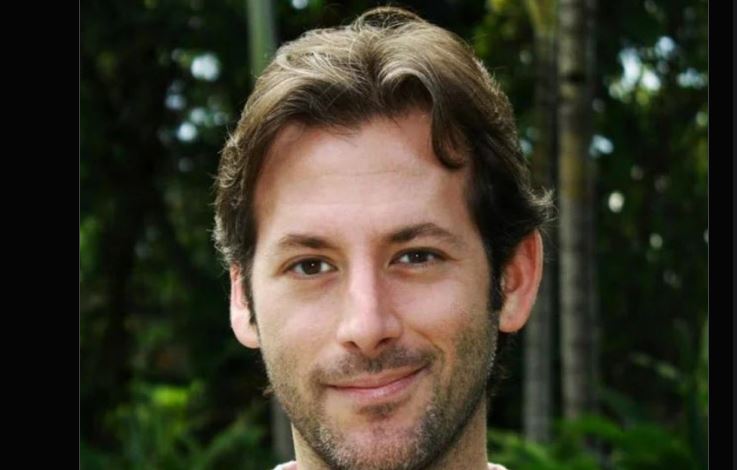The world of independent cinema mourned the loss of Jeff Baena, a visionary filmmaker known for his unique storytelling and dark comedic flair, who passed away at the age of 47. Baena’s death was confirmed on January 3, 2025, with the Los Angeles County Medical Examiner stating that he died by suicide. His departure has left a profound impact on those who knew and admired his work, sparking reflections on his life, career, and the indelible mark he left on film.
Early Life of Jeff Baena
Born on June 29, 1977, in Miami, Florida, Jeff Baena grew up in a secular Jewish household. His parents, an attorney and a teacher, fostered an environment rich with intellectual curiosity, particularly in the arts. Baena’s early life was marked by an avid interest in film, sparked by watching classics like Stanley Kubrick’s “A Clockwork Orange” and Federico Fellini’s “8½”. This love for cinema led him to pursue film studies at New York University, where he honed his craft under the guidance of some of the industry’s best educators.
After graduating from NYU, Baena moved to Los Angeles to kickstart his career in the entertainment industry. He initially worked as a production assistant for Robert Zemeckis, gaining invaluable experience on the sets of films like “Cast Away” and “What Lies Beneath”. His dedication and talent quickly propelled him into a role as an assistant editor for David O. Russell. This collaboration was pivotal; Baena co-wrote the screenplay for Russell’s existential comedy “I Heart Huckabees” (2004), which starred a notable ensemble cast including Dustin Hoffman and Lily Tomlin. This film was his first major writing credit, blending humor with philosophical inquiry, a style that would become his signature.
Directorial Debut and Rise in Indie Cinema
Baena’s directorial debut came with “Life After Beth” (2014), a film that showcased his knack for combining horror and comedy in an unconventional narrative about a young man dealing with his zombie girlfriend. The film starred his future wife, Aubrey Plaza, with whom he would collaborate several times throughout his career. “Life After Beth” premiered at the Sundance Film Festival, setting the tone for Baena’s career in indie cinema where he was known for his offbeat, genre-bending films.
Following this, Baena continued to write and direct films that carved out a unique space in the indie scene:
-
“Joshy” (2016) – A dramedy exploring grief and friendship, it starred Thomas Middleditch and Aubrey Plaza, among others, and again premiered at Sundance, receiving critical acclaim for its nuanced handling of emotional themes.
-
“The Little Hours” (2017) – An adaptation of Boccaccio’s “The Decameron”, this film was an irreverent comedy set in a 14th-century convent, featuring Plaza, Alison Brie, and Dave Franco. It was praised for its modern take on medieval humor.
-
“Horse Girl” (2020) – Baena co-wrote this psychological drama with Alison Brie, who also starred. The film explored themes of reality, identity, and mental health, cementing Baena’s reputation for tackling complex subjects with a unique lens.
-
“Spin Me Round” (2022) – His final directorial effort, this romantic comedy starred Plaza and featured a script co-written with Brie, continuing his tradition of collaborating with talented actors and writers.
Baena’s personal life was closely intertwined with his professional one, particularly through his relationship with Aubrey Plaza. The couple began dating in 2011, marrying in 2021. Their partnership was not only romantic but also creative, with Plaza starring in many of Baena’s films. This collaboration was often described by both as one of mutual inspiration and support, allowing them to explore and push creative boundaries together.

Legacy and Impact
Jeff Baena’s films were not just stories; they were explorations of human psyche, often laced with existential questions, dark humor, and a celebration of the absurd. His work was celebrated at various film festivals like Sundance, South by Southwest, and was distributed by platforms like Netflix, IFC, and Lionsgate, indicating his broad appeal within indie circles.
His untimely death has sparked a conversation about the pressures within the creative industries, the importance of mental health, and the legacy of a filmmaker who dared to be different. Baena’s films continue to resonate with audiences for their originality, wit, and depth.
The film community has been vocal in its tributes to Baena. Sundance Film Festival issued a statement mourning his loss, acknowledging his contributions and his unique voice in cinema. Many of his peers, including Marc Maron, expressed their sadness over losing a “true artist and sweet guy.”
The confirmation of Baena’s cause of death by suicide has also led to an outpouring of support for mental health awareness, emphasizing the need for support systems within the arts. Organizations have pointed to resources like the National Suicide Prevention Lifeline, encouraging open conversations about mental health.
Jeff Baena’s life was tragically cut short, but his films will continue to inspire, entertain, and provoke thought long after his passing. His journey from a film-loving kid in Miami to a respected indie filmmaker in Hollywood is a testament to his passion, creativity, and the profound impact one can have in a relatively short career. As we reflect on his contributions, we also remember the importance of nurturing the mental well-being of artists, ensuring that the legacies of those like Baena continue through the stories they leave behind.

